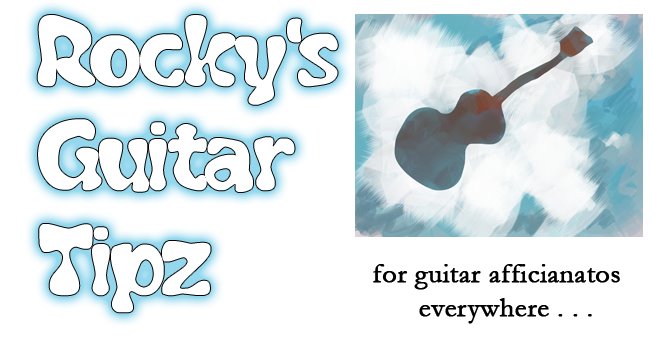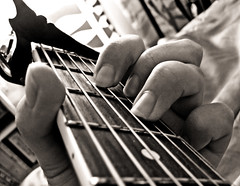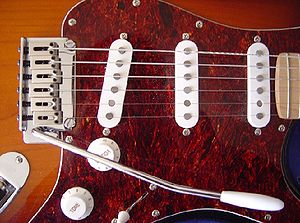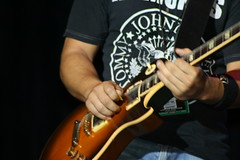By Joss Schuyler
In order for you learn how to play lead guitar you need to know that it not only takes some natural talent but you need to understand the theory and technique as well. There are plenty of people already playing lead guitar who wish to be the best that they can be. But for some people this is easier said than done. Below we offer a few tips that could help improve your playing lead guitar in the future.
Tip 1 - If you really want to become a great lead guitarist then you need to learn the basics of playing the instrument first. Although you may think that it is worth skipping the stuff that you consider to be boring then when it comes to playing the instrument will prove even more of a challenge.
Tip 2 - Although you may want to start playing the guitar stood up and jumping around it isn't the best way to learn this instrument. It is far easier if you practice your playing whilst sat in a comfortable chair. Along with you being more relaxed so retaining what you learn becomes easier but also you won't tire so quickly when practicing.
Tip 3 - You need to make sure that you discipline yourself to practice when you should. Therefore if you say you are going to spend 45 minutes each day on practice then don't decide to finish it 10 or 20 minutes before you should.
Tip 4 - It is a good idea to learn alternate picking rather than economy picking otherwise when it comes to learning more complex techniques or playing faster pieces will become more difficult. When we talk about alternate picking we are talking about you alternating when picking between the up and down strokes. Learning this not only becomes an automatic reflex but you find that you then are able to pick the strings a lot more quickly.
Tip 5 - Dedicate time to learning the various techniques for playing the lead guitar which means learning how to play bends, slides, vibratos, hammer ons, pull offs and the other tricks lead guitarist use. As well as making your guitar playing a lot more colorful they will help to make it more expressive.
Tip 6 - Whenever you want to learn how to play certain guitar solos the first thing you will need to learn is the scales that you will have to play repeatedly. The most popular scales that guitarists will learn are the E Blues and the pentatonic ones. Both of which can act as a framework to your playing and assist you in creating your own solo pieces of music as well.
Tip 7 - This final tip for playing lead guitar is the most important and is the one that says practice, practice, practice. The more you practice a piece then the more you will remember it and so over time it becomes much easier to play. It is best to start of learning each piece slowly and then to build up your speeds use a metronome.
To get a free guitar course, plus lots of tips for playing lead guitar like the legends and ideas for starting your own band, visit Lead Guitar Guide.
Article Source: http://EzineArticles.com/?expert=Joss_Schuyler
 Image via Wikipedia
Image via Wikipedia

![Reblog this post [with Zemanta]](http://img.zemanta.com/reblog_b.png?x-id=ff242874-0f97-4a74-96e6-9748a72e587f)

![Reblog this post [with Zemanta]](http://img.zemanta.com/reblog_b.png?x-id=6e0b8862-680b-4a63-8d31-f38aee64f1db)

![Reblog this post [with Zemanta]](http://img.zemanta.com/reblog_b.png?x-id=ae5ee84f-1abc-4e31-8311-bc3fcf4c945e)

![Reblog this post [with Zemanta]](http://img.zemanta.com/reblog_b.png?x-id=917ad70f-f3ff-4d0f-9449-2367ec3f4e5d)

![Reblog this post [with Zemanta]](http://img.zemanta.com/reblog_b.png?x-id=a8232bb3-9300-4139-828b-978742b3a22a)

![Reblog this post [with Zemanta]](http://img.zemanta.com/reblog_b.png?x-id=c9d09677-43e5-42dd-a82e-503a4a8a78d4)